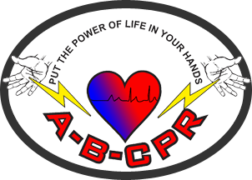The easy answer is yes. Although California state law requires that you see through care once you begin, there are certain circumstances where you can stop CPR. These are important to know and although they won’t prevent a lawsuit, these conditions are guaranteed by the state of California.
If you are in the heat of the moment, and attempting to remember what the conditions are, just remember S-T-O-P.
S – Signs of Life
If someone begins to yell at you to get off of their chest, and that you are hurting them, it is pretty clear that they no longer need CPR. By no means does this mean that they don’t need medical attention, but compressions and breaths are no longer needed. Make sure that the victim goes to the hospital, but you no longer have to continue care.
T – Too Tired to Continue
CPR is hard work. If you have ever taken a class or performed CPR in the field, you know that it takes a lot of energy to do. Although you will be assisted by your adrenal glands shooting adrenaline through your body, you won’t be able to perform the task forever. If you are too tired to continue, you no longer have to administer care.
O – Other
If someone equally or more qualified than you offers help, you are allowed to stop CPR to allow someone who is less tired to assist you. If the person that offers help has no idea what they are doing, reconsider if they would be the right fit to help. If someone who is equally or more qualified than you shows up and helps, be prepared to start again once they get tired. Change shifts until Emergency Medical Services arrive.
P – Pronounced Dead
You may believe that someone is dead, and if you are doing CPR than you are correct. You only perform CPR if the victim does not have a heart beat and is not breathing. However, the only person that can pronounce officially that it is time to stop because there is no chance of revival is a doctor. Stopping CPR because a doctor pronounces time of death will only occur in a hospital.
This S-T-O-P acronym helps in a time of crisis when providing care. These four rules are very important to remember. The only other time to stop CPR, and possibly the most important time to stop CPR, is when the scene becomes unsafe. If you are in a situation where you could become another victim, make sure that you get to safety. It is better to only have one victim than two.
If you want to learn more about CPR training, make sure to visit our website and take a class at www.a-b-cpr.com





